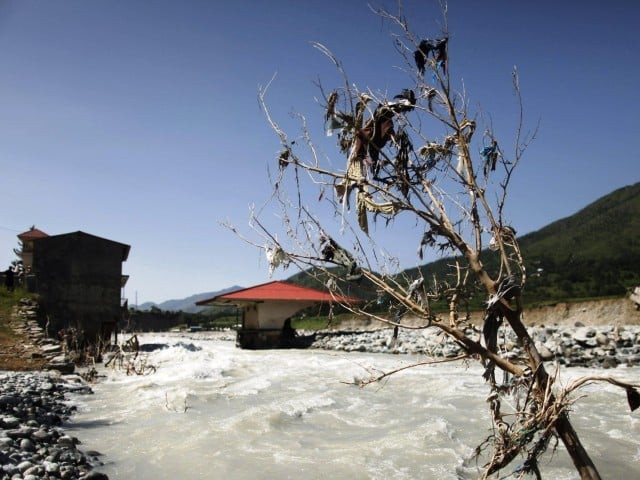Climate change poses risk of 20% GDP erosion in Pakistan
World Bank says women, educated populace more concerned about climate change impacts

Pakistan’s GDP is anticipated to experience a decline of 18 to 20 per cent by the year 2050 due to the escalating impact of severe weather-related events, environmental degradation, and rampant air pollution, the World Bank has warned.
In its report, titled 'Climate Silence in Pakistan,' the WB has cautioned about the serious repercussions of climate change on the nation which are already evident through erratic weather patterns and devastating floods that have ravaged the country.
A staggering 8 out of 10 people in Pakistan are concerned about the escalating effects of climate change, while the concerns appear to be higher among women and the educated populace.
However, despite the widespread apprehensions, a disparity in trust towards climate-related information exists, particularly noticeable among individuals with limited education, who tend to show higher levels of scepticism towards climate data from all sources.
Also read: Climate damage fund hailed, but 'needs billions rather than millions'
Moreover, while parents exhibit a burgeoning demand for climate change education for their children, the discourse within households on the pressing issue remains minimal, reflecting a significant gap between concern and action.
Despite the pervasive unease regarding climate change, both personal and governmental support for tangible actions remains remarkably low, the report pointed out.
Reframing the narrative
The World Bank further emphasised the urgency of strategies aimed at inducing behavioural changes by reframing the narrative around climate action, advocating for approaches that underscore financial savings rather than merely highlighting environmental impacts.
The report underscored the critical need for comprehensive analyses delving into the intricate drivers of individual perceptions and behaviours concerning climate change within Pakistan.
It suggested a correlation between person’s perceptions of climate change and their encounters with income shocks, citing that those affected by events like the Covid-19 pandemic or flood-related income loss demonstrate heightened concern regarding climate change impacts.
Also read: Pakistan’s first-ever climate change plan unveiled
The report revealed a 4-percentage point increase in considering climate change crucial when economic concerns in discussions precede social issues.
Moreover, there is a correlation between education levels and perceptions of climate change, with a more pronounced difference in preferences between groups when economic issues are emphasised first, indicating the perception of climate change as an economic predicament.
“Pakistan, like many developing nations, stands vulnerable to the repercussions of climate change, including soaring temperatures and a surge in natural calamities such as floods,” the report said.
Despite expressions of concern when directly probed about climate change, it is notably not a primary priority for many individuals.
In conclusion, the report called for nuanced interventions that address the multifaceted dimensions shaping attitudes and actions towards climate change in Pakistan, urging for a concerted effort to bridge the gap between concern and meaningful action in combating the existential threat.



















COMMENTS
Comments are moderated and generally will be posted if they are on-topic and not abusive.
For more information, please see our Comments FAQ